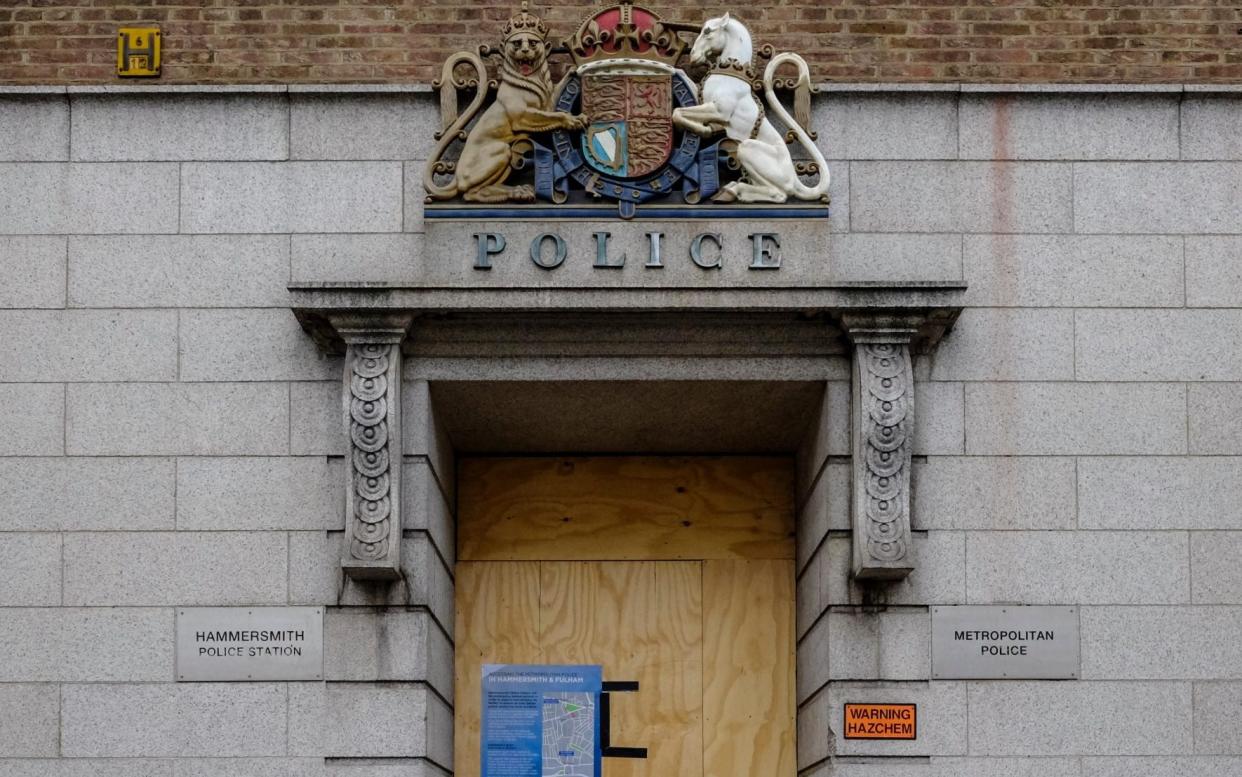Police station closures linked to rise in murders and fall in house prices

Shutting police stations causes a rise in murders and a decline in house prices, a study has suggested.
The research, by the Institute of Fiscal Studies (IFS), found the closures led to a “sudden and persistent” 11 per cent rise in murders and assaults in the areas around them.
The analysis of one million crimes revealed that there was also a 3.7 per cent drop in the clear-up rates for offences because officers were slower in getting to crime scenes after the stations shut down.
Residents were less likely to report petty crimes such as shoplifting or bike thefts if there was no police station nearby because they felt officers would not do anything. The research suggested the fall in reporting offences could be as much as 17 per cent.
Dr Elisa Facchetti, an IFS researcher, said the rise in crime meant police station closures had a wider social effect, including a drop in house prices because the areas affected were perceived to be less safe. She concluded that the costs to society and the criminal justice system from increased crime outweighed the savings from shutting police stations.
More than 600 out of 900 police stations in England have been shut in the past decade, with London the worst hit. The capital has seen a 75 per cent reduction since 2008, with stations cut from 160 to 36.
Closures ‘add more costs in the long run’
“Intuitively, house prices not only reflect the direct costs associated with crime changes but also the indirect costs, such as the loss of local amenities and changes in perceptions of safety, that may arise as a result of the closures,” said Dr Facchetti.
She said that “for every £5 saved by the public authorities, up to £3 are paid back by the local residents in terms of foregone house valuations”, adding: “Furthermore, I calculate the marginal value of public funds. I estimate that for each pound saved by the public administration, £3 to £7 of additional costs are borne by the society.”
The IFS study focused on London, where the surge in closures has meant the average distance to the nearest police station for Londoners has doubled from around one mile to around two.
It found criminals were more likely to operate in places where they could see that police stations had been abandoned.
The Greater London Authority claims it has reinvested all the funds from the sales straight back into front-line policing in the capital and ensured that local neighbourhood teams continue to carry out regular patrols in their dedicated wards, with no officers being based more than a 20-minute journey away.
Dr Facchetti, however, argued that this had been a false economy, with the closures saving money in the beginning but then causing more costs in the long run.
‘Comfortable and supportive environment’
A spokesman for Sadiq Khan, the Mayor of London, said: “The Met are in the process of reviewing their buildings through their estates strategy, and more information on the future of sites will be announced in due course.”
Met Commissioner Sir Mark Rowley’s policing plan for London, while not mentioning any specific plans to reopen police stations, does mention improving ways of using buildings and methods to make police officers more visible within communities, which could help to tackle some of the effects found in Dr Facchetti’s research.
For example, by the end of last year the force planned to hold two open-to-all community events in each borough, and four by the end of 2024.
It intends to create hubs to process digital evidence and for buildings to “provide victims of crime with a comfortable and supportive environment”.

 Yahoo News
Yahoo News 
